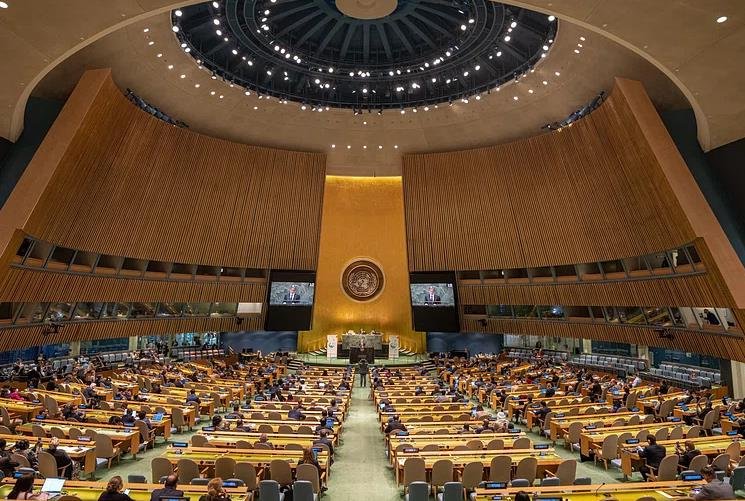The inaugural India-GCC Foreign Ministers’ Meeting took place in Riyadh, marking a significant milestone in the diplomatic relations between India and the Gulf Cooperation Council (GCC) countries. External Affairs Minister S. Jaishankar represented India at this historic event, which aimed to strengthen ties in trade, investment, and energy. The meeting underscored the growing importance of the Gulf region for India’s foreign policy and highlighted the multifaceted relationship between India and the GCC nations. Here are six key highlights from the meeting.
The primary focus of the meeting was to enhance trade and investment relations between India and the GCC countries. Both sides emphasized the need for increased economic cooperation and explored new avenues for collaboration. The discussions highlighted the potential for mutual growth and prosperity through strengthened trade links.

India and the GCC countries have a long history of trade relations, with the Gulf region being one of India’s largest trading partners. The meeting aimed to build on this foundation by identifying new sectors for investment and trade. Both sides expressed their commitment to creating a conducive environment for businesses to thrive.
The meeting also addressed the challenges faced by businesses in both regions. By working together, India and the GCC countries aim to overcome these challenges and create a more seamless and efficient trade ecosystem. This collaborative approach is expected to boost economic growth and create new opportunities for businesses and investors.
Focus on Energy Cooperation
Energy cooperation was another key area of discussion during the meeting. The GCC countries are major suppliers of oil and gas to India, and both sides recognized the importance of maintaining a stable and secure energy supply. The meeting explored ways to enhance energy cooperation and ensure long-term energy security for both regions.
India’s growing energy needs were a central topic of discussion. The GCC countries play a crucial role in meeting these needs, and the meeting aimed to strengthen this partnership. Both sides discussed the potential for joint ventures and investments in the energy sector, including renewable energy projects.
The meeting also highlighted the importance of diversifying energy sources. By investing in renewable energy and exploring new technologies, India and the GCC countries aim to reduce their dependence on fossil fuels and promote sustainable energy solutions. This forward-looking approach is expected to benefit both regions and contribute to global energy security.
Cultural and People-to-People Ties
The meeting also focused on enhancing cultural and people-to-people ties between India and the GCC countries. Both sides recognized the importance of fostering mutual understanding and strengthening cultural connections. The discussions highlighted the rich cultural heritage shared by India and the Gulf region.
One of the key initiatives discussed was the promotion of cultural exchanges and collaborations. By organizing cultural events and exchange programs, India and the GCC countries aim to deepen their cultural ties and promote greater understanding between their peoples. These initiatives are expected to create a stronger bond and enhance mutual respect.
The meeting also addressed the role of the Indian diaspora in the GCC countries. With approximately 8.9 million Indians living in the Gulf region, the diaspora plays a significant role in strengthening bilateral relations. The meeting aimed to address the concerns of the Indian community and ensure their well-being and integration into the host societies.
